The 50 most important PC games of all time
They changed how we make games, how we play games, and they changed us.
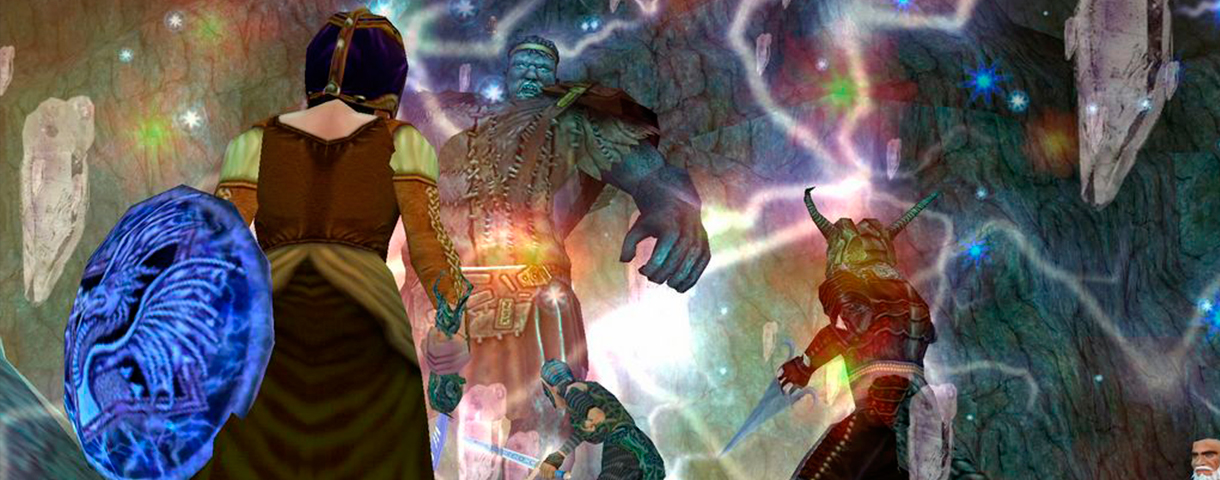
Everquest
Released: March 1999 | Developer: Sony Online Entertainment
Why it's important: Not the first MMO, but the one that set the ‘DikuMUD’ pattern that modern games still tend to follow—the levelling, the dungeons, and population counts in the millions. Others, particularly World of Warcraft, would evolve it, but few had the confidence to outright break a template that worked so well.
While by no means the first massively-multiplayer online RPG, EverQuest was the game that inspired just about every modern MMO, from World of Warcraft to many dozens more. More than that, it created a gameworld so compelling that players could lose themselves to EverQuest for hundreds or even thousands of hours, so well did the game live up to its name.
This was the first online game with a truly massive, fully 3D world. The allure of this world was incredibly strong and immediate, starting with the choice of many wildly different fantasy archetypes, from tiny halflings and wood-elves to hulking trolls and ogres. You could spend weeks just in the game's various starting areas. EverQuest's world was a hodgepodge of every classic fantasy trope, and when playing, you felt like you could never see it all. You could spend hours exploring just one of its huge zones, or if you felt adventurous and pushed farther out, chances are you felt a thrill unlike any other games could provide.
The sense of discovery in EverQuest was so powerful because there was so much at stake—if you died, not only did you lose a chunk of experience but you'd have to recover your equipment where you lost it, or else it'd be gone for good. Later games lightened up on this kind of penalty, but in EverQuest's day it made for one of the most gripping and memorable game experiences ever made. — Greg Kasavin
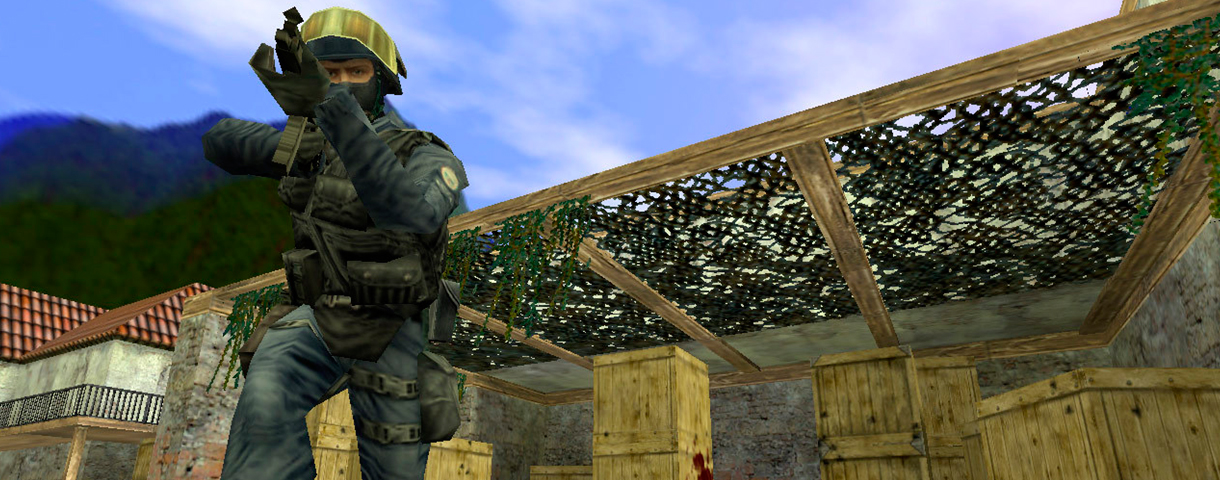
Counter-Strike
Released: June 1999 | Developer: Valve
Why it's important: Along with being one of the first mods to hit the big time, Counter-Strike introduced the world to the joy of team-based tactics and brutal punishments for failure. Where once there was chaos, there was order. Until some camping bugger bought the AWP.
Keep up to date with the most important stories and the best deals, as picked by the PC Gamer team.
Some point during the still-extending life of the original Counter-Strike, players learned to cancel the reload of a weapon by swapping to another gun (and back) just before the animation was complete. Fast-swapping in this way shaved a few milliseconds off the completion of a reload, more than enough of a benefit to make it standard practice. Years before Gears of War formalized “active” reloads as a micro-game, Counter-Strike players had adopted the homemade equivalent. The spirit of PC gaming lives in these sorts of instances, where a community bends an aspect of a game and permanently changes that game’s culture in the process.
Sometimes it’s best for developers to get the hell out of the way and let players take and keep ownership over what they’ve made. Counter-Strike is standing evidence that this light-touch approach, paired with great design and moddability, can make your game immortal. Very few shooters have thrived for 15 years on the back of essentially the same pool of maps, guns, and other content. CS’ unique purity is part of the reason why—even with a distracting weapon skins system attached to it, CS:GO is still an arena where motor skills, knowledge, and physical awareness trump everything.
A lot of Counter-Strike’s longevity is owed to its designers’ good restraint to not put their fingerprints all over everything, to instead leave the evolution of CS in the hands of its players, who have had no trouble creating their own traditions within it (surf maps being just one example), and ultimately building one of the biggest esports scenes in the world. CS’ durability looks strange when you compare it to Team Fortress 2, a game that Valve has updated 500 times, but it’s no less a lesson to studios everywhere to trust your players. — Evan Lahti
———
We've already talked about the many ways Half-Life was important to singleplayer shooters, but Half-Life also revolutionized the multiplayer world. Counter-Strike began as a Half-Life mod, and was the first successful multiplayer shooter to do so. Thanks to the growing influence of online forum communities, it grew in popularity fast and caught the attention of Valve itself.
Counter-Stike was also the first multiplayer shooter to introduce an in-game economy, which added a layer of meta-strategy for players. Debates raged online within the community: What's the best gun upgrade? Armor or grenades? Ammo or no ammo?
To me, Counter-Strike brings back memories of high school computer labs and lunch-hour tournaments that were definitely, definitely not allowed by school policy. Luckily for my friends and I, our computer science teacher had no desire to force a bunch of nerds out into the midday sunlight, where we would surely shrivel and burn.
The most sure-fire measure of Counter-Strike's importance, though, is that it never went away. After launching in 1999, it began a decades-long journey of improvement, update, and iteration. It's now 16 years old, and hundreds of thousands of players still log on every day to play the original Counter-Strike, its various iterations, or Counter-Strike: Global Offensive. Having a huge audience active in a game with set rules and mechanics was also instrumental to the rise of esports in the Western world. Counter-Strike continues to influence players and developers as one of the longest running, most popular multiplayer shooters in video game history. — Ian Birnbaum
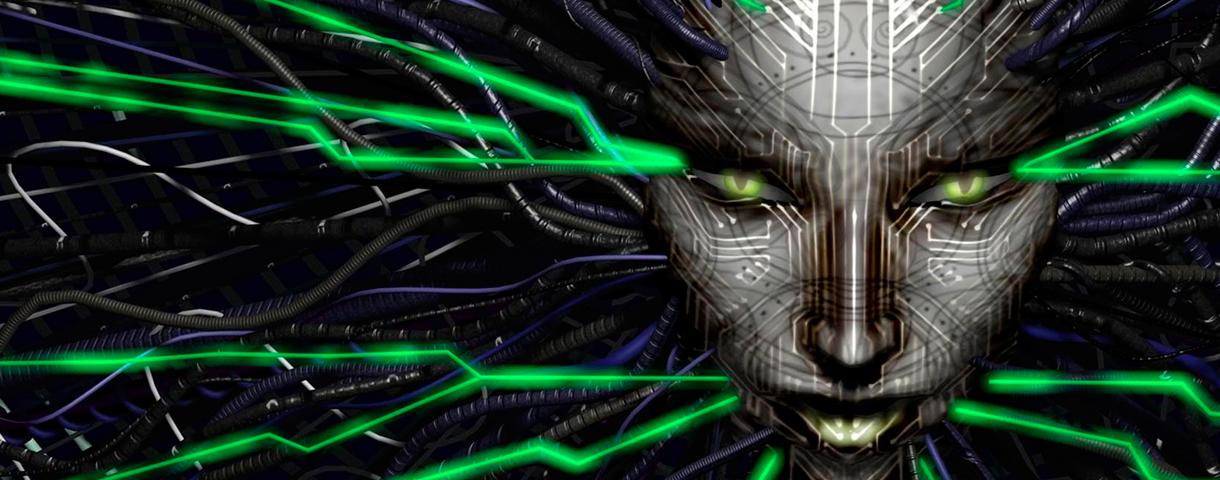
System Shock 2
Released: August 1999 | Developer: Looking Glass Studios, Irrational Games
Why it's important: Along with Deus Ex, System Shock refined the shooter/RPG hybrid to a razor’s edge. Audio logs, gripping combat, horror and atmospheric storytelling all came together like nothing else, with SHODAN tying it all together using a bow of pure evil.
We still quote System Shock 2 in development meetings and have for many years—the pacing of the tutorial, the character creation sequence, and of course, SHODAN, one of the best female adversaries ever, who radiated menace by voice alone. Every time she spoke, it felt like she was stabbing electrified needles into your ears and pinning you down like a twitching insect. Which to her, you were—and made defeating her all the more satisfying.
This game was amazing, and was almost—almost—an amazing RPG as well. It had great character class development trees including psionics (!), a cool set of abilities that made you feel their advantages (and the lack of them if the ability was weak), it created urgency and tension while exploring with time-based implants (trying to run back to recharge an implant that you desperately needed reminded you the clock was always ticking), and the sheer quality of the voice acting (the creepy midwives, the cheerful explosive protocol robots, and the crewmen that begged you to kill them as they launched themselves at you), all culminating in a final confrontation that takes you all the way back to the very look and feel of System Shock 1.
It was an amazing, unforgettable experience, and one that few FPSs to date have captured.
On a parting note, it had cyrokinetic monkeys. Cyrokinetic. Monkeys. And they were terrifying. Do you know how hard it is to sell an idea like that, let alone pull it off? Kudos to Irrational and Looking Glass. — Chris Avellone
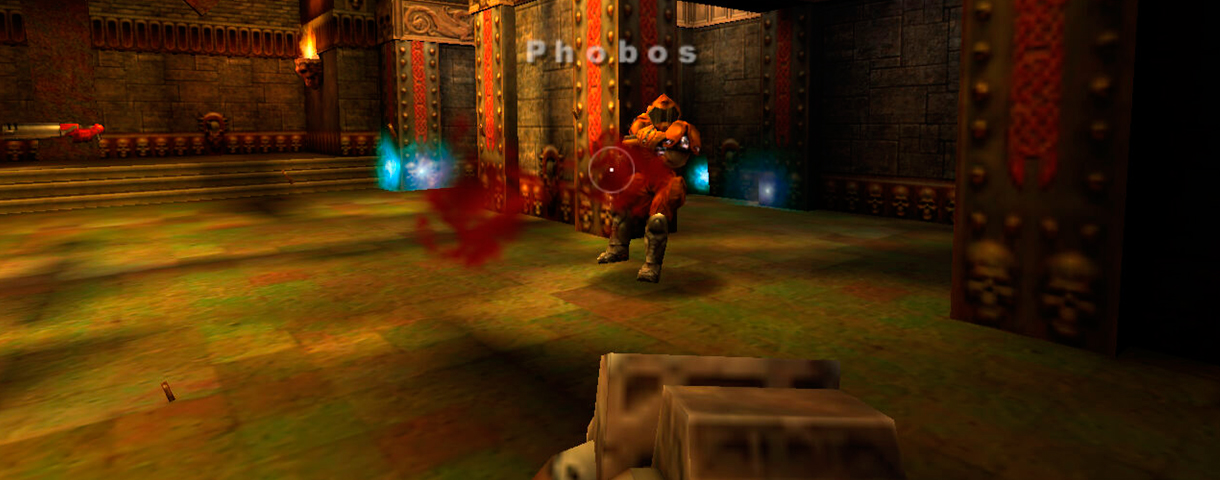
Quake III: Arena
Released: December 1999 | Developer: id Software
Why it's important: As with its predecessors, Quake III (and Unreal Tournament) defined a generation of online shooters. Where Unreal pinned its hopes on gimmicks though, Quake kept things simple—solid weapons, simple but perfectly designed arenas, and a blazing pace that kept the action humming for round after round after round after… we may be here a while.
I remember getting my hands on the Quake III Arena Test, which released on my birthday in 1999. I printed out a screenshot and took it to school to show my friends how rounded it was, like the dweeb I am. id Tech 3 was a phenomenal advancement, and as with Quake and Quake II, I was most excited to see what could be made in this new world—a ton, it turned out.
Which isn’t to say I didn’t spend a huge amount of time just playing Quake III. I spent days worth of time in The Longest Yard, struggling to be the one with the railgun. Quake III is a movement, gun, and level design masterpiece, and a prototype for the super-focused approach to modern esports games. For a lot of people, it was also their first competitive shooter, which is for the best, as it’s still one of the greatest ever made.
And even though id Software moved on to Quake Live, playing the original Quake III: Arena online is a cakewalk—the server browser works just like it did before Y2K destroyed all computers. Quake III is one of the last chunks of bedrock in the classic age of shooters and online multiplayer—a sturdy, preservable base for mods to take root in, and an example of how to design and develop an FPS that should be in any curriculum dealing with the medium. — Tyler Wilde
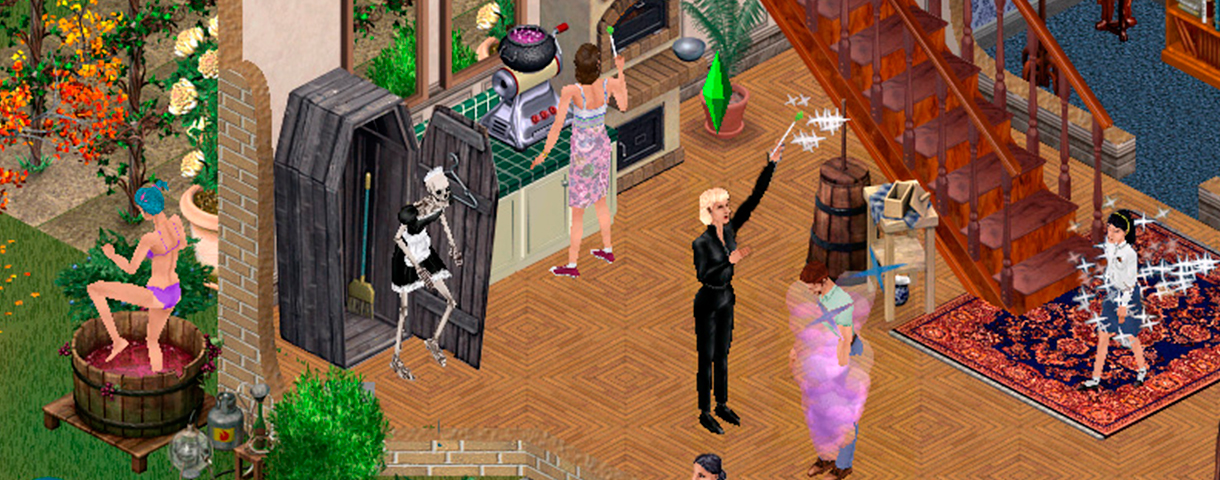
The Sims
Released: February 2000 | Developer: Maxis
Why it's important: As well as being one of the best-selling games of all time, The Sims proved that games not only could feel personal, but that they could excel at it. Its little dollhouse offered the perfect mix of building satisfaction and cruel sadistic whims, as well as inspiration for others.
There was a moment when I realized I had to stop playing The Sims. Shepherding a little version of myself through household tasks, work, friendships, and love was incredibly compelling because at the time it was my own life in miniature. In 2000, I myself was buying cheap furniture to furnish a tiny home, cooking meals that often wound up ruined, looking for a decent job, trying to make money and make friends and get laid.
The issue: I was enjoying my Sim's struggles a lot more than my own, and so I constantly put his needs ahead of mine. I'd have him clean his kitchen while mine remained stacked with dishes. I'd have him pay his bills while my own piled up. He'd go to work a lot more regularly than I would and had more friends than I did. Eventually I bought my Sim a computer, one that looked a lot fancier than the one I was playing The Sims on, which he could afford because he had a better job than I did because I was working harder on his life than my own. That's when I had to forcefully disengage. I had to clean my own kitchen, for crying out loud.
A lot of what The Sims gave me still sticks with me in bigger, grander games like Skyrim: the enjoyment of not playing as some powerful superbeing but just as a regular person, the oddly engrossing nature of living a quiet, mostly uneventful life in a game, the pleasure of being just a routine part of a simulation instead of some bizarre anomaly. Doing little chores and tasks, decorating a home, puttering around. Essentially, playing house. It's what we did as little kids, and The Sims tapped into that perfectly. — Chris Livingston

Wes has been covering games and hardware for more than 10 years, first at tech sites like The Wirecutter and Tested before joining the PC Gamer team in 2014. Wes plays a little bit of everything, but he'll always jump at the chance to cover emulation and Japanese games.
When he's not obsessively optimizing and re-optimizing a tangle of conveyor belts in Satisfactory (it's really becoming a problem), he's probably playing a 20-year-old Final Fantasy or some opaque ASCII roguelike. With a focus on writing and editing features, he seeks out personal stories and in-depth histories from the corners of PC gaming and its niche communities. 50% pizza by volume (deep dish, to be specific).

